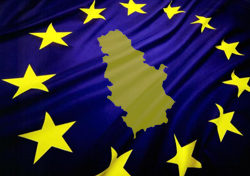
The European model and institutional crisis

There are no Chatham House Rules on secrecy that could hide that there is nothing in the debate on the future media strategy that should be kept from the public. The pompously announced first local study that will be used to prepare the strategy and recent public debate have demonstrated two alarming facts: the Ministry of Culture is incapable of creating the strategy of media development in the next three, five or ten years, while the media – impoverished and weakened – would hardly have enough strength to implement any such vision of future.
The study was prepared by foreign experts and each round table was attended by participants from various countries, but the discussions have so far mostly had a very local character. Primarily because many have tried to discredit any kind of European approach. They usually do it by agreeing on 'the lack of a model that could be copied and by insisting on emphasizing specific domestic characteristics. In this way, European standards are acknowledged, but our specific characteristics become an excuse for not implementing them. If there is no European model available, this means that it would be possible to create a system without any rules, and even to build institutions or practices that are contrary to the core values of the system.
And the list of specific domestic characteristics is quite long: with the same number of employees and 8 times less money than public service broadcasters in countries of a similar size, the RTS will be able to make programme of similar quality; the national TV does not need windows for regional broadcasting because Svilajnac, for example, would not have anything worth watching to offer; the huge number of existing TV stations is not a problem because market forces will select those that will survive; the digitalization is too serious a project and therefore the convergence of regulators should be discussed only when it is completed; the work of public service broadcasters should not be appraised on the basis of their ratings or the audience's willingness to pay the TV fee but should be discussed without public participation and without taking into account any business parameters; the RTS is far from being independent and is certainly pressured by politicians, but if we form local public service broadcasters, the local politicians will respect their independence and the local media will successfully resist the politicians; the advertising market in Serbia is one of the poorest in Europe but can still support a huge number of TV stations; the future of the press council depends on whether a foreign ambassador has organized its funding or not; etc.
Relativization of the European framework has become the easiest way to block any changes. With such joint tactics, it is almost irrelevant what are the exact points of disagreement among the main participants in the debate. The Ministry of Culture, which has commissioned the study and organized the public debate, has been playing the role of a lucky winner. The minister of culture has appeared on the opening of the public discussion and immediately left the event together with foreign ambassadors, as if the domestic media were a foreign country to him. He has not taken advantage of the chance to offer the media community even a brief description of his vision of the media development in this difficult and decisive moment. One of the guests from Great Britain described me the changes in their local political environment immediately after the recent elections – their new minister has a clear aim to assist the development of local media, which is his agenda in the process of preparation of a new law and introduction of changes in OFCOM's activities. He believes that the vision of development is a political issue and that it can be tackled only by the Ministry, which has a political mandate to create media policy, instead of OFCOM which is only a regulatory body – although very powerful. I am afraid that it is not possible to explain the subtlety of such differences to those who are tasked with media policy in this country.
On the other side, the impoverished and frightened media representatives are mostly striving to retain their currently existing rights; to remain financed by the national budget; to achieve creation of as many funds as possible that would offer money to the media (per projects or otherwise); to completely stop the privatization that has already been suspended; to relieve commercial media outlets of any obligations toward the public and to diminish public service broadcasters' commercial revenues and their approach to advertising; to reduce the public service broadcaster to a bare-bone TV model that would air only news, European films and non-profit programmes; to prevent any discussions on fair competition or prevention of illegal media concentration; etc.
It is obvious that behind all these opinions there exists a fundamental problem that would make any media strategy very difficult to implement even when it is adopted – and that is a deep distrust in institutions and in government's good intentions, as well as a serious crisis of confidence in the state itself. This serious problem cannot be solved by any media strategy.
Snjezana Milivojevic
MC Newsletter, September 24, 2010
View all comments (0) Leave a comment
Published comments contain opinions that are not the opinions of Media Center. Responsibility for the content of messages and their accuracy lies on the website users who posted them.
 |
| The content of this article does not necessarily reflect the view of the Media Center. The author bear full responsibility for the content of the text. |




